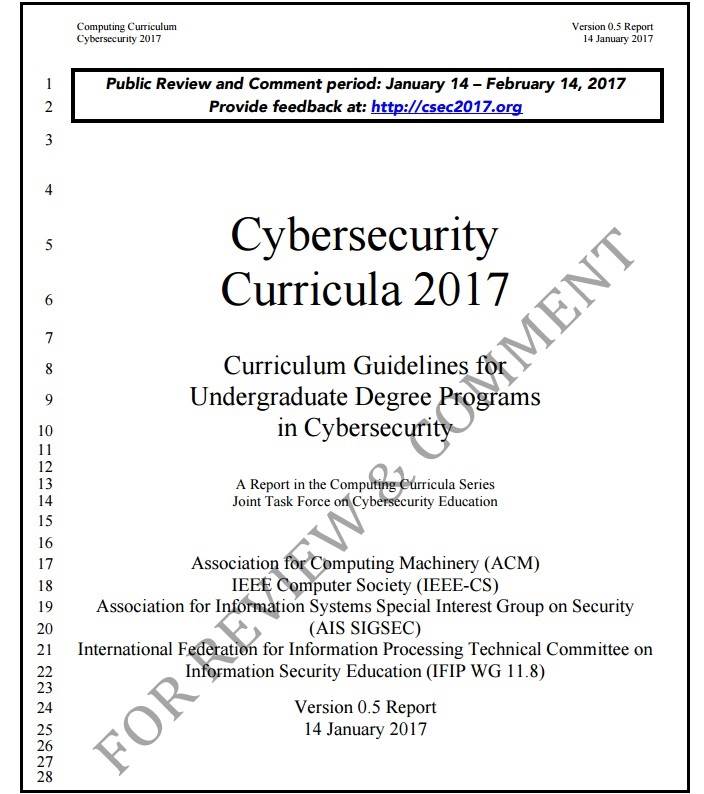After two years in development, the first draft of guidelines for a global tertiary cybersecurity qualification have been released for public review.
The ‘Cybersecurity Curricula 2017 – Curriculum Guidelines for Undergraduate Degree Programs in Cybersecurity’, produced by the ACM Joint Task Force on Cybersecurity Education, is the first draft of the first set of global curricular guidelines in cybersecurity.
The guidelines are available for public review and comment until 14 February 2017.

The joint task force consists of the Association for Computing Machinery (ACM), IEEE Computing Society (IEEE-CS), Association for Information Systems Special Interest Group on Security (AIS SIGSEC), International Federation for Information Processing Technical Committee on Information Security Education (IFIP WG 11.8)
Recognising the global shortage of cybersecurity professionals, these bodies banded together in 2015 to produce guidelines for a tertiary cybersecurity qualification.
“By all accounts, the world faces a current and growing workforce shortage of qualified cybersecurity professionals and practitioners,” the report states. “In fact, both government and non-government sources project nearly 1.5 million cybersecurity-related positions going unfilled by 2020. The workforce demand is acute, immediate, and growing.”
Cybersecurity has gained prominence in recent years, with cyber attacks on governments making headlines around the world.
“The growing threat of cyber attacks has made governments and companies more aware of the need to defend the computerised control systems of utilities and other critical infrastructure,” according to the report. “Another growing concern is the threat of nation-states engaging in information warfare and the possibility that business and personal information systems could become casualties if they are undefended.”
The course includes study units in cyber criminal behaviour, cyber terrorism, multifactor authentication, ethical hacking and computer hacking laws.
ACS Fellow and Head of ACS’ Cybersecurity taskforce, Professor Jill Slay, has been closely involved in the consultation process through a global advisory committee.
“This is an important scope of work that will greatly assist Australian Universities implement global best practice into their cybersecurity degrees. Once completed, ACS will be there to provide insight into contextualising for the nuances of our domestic need,” she said.
ACS President Anthony Wong and IFIP Board member said “one of the benefits of ACS’ long standing membership of IFIP is that we can access and share with global stakeholders very effectively. This body of work is providing a timely output on the structure of the cybersecurity discipline in today’s modern world.”
The ACS released its own report ‘Cybersecurity – Threats, Challenges, Opportunities’ last November.




.jpg)





